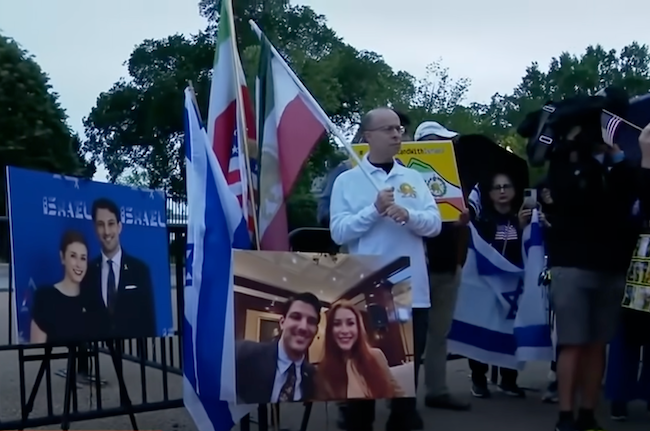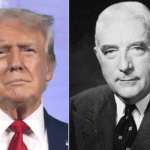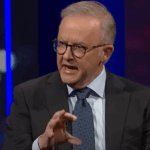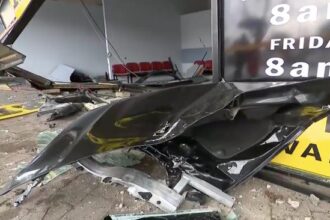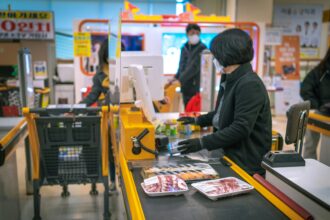Repression and Resistance: The Politics Behind the Israeli Embassy Shooting
Shutting down conversation around the Israeli embassy shooting isn’t a solution—it’s a silencing tactic. As writer Tom Tanuki points out, when society avoids discussing violence, it risks equating critique with complicity. This piece explores the political, moral, and ethical layers of the embassy shooting, delving into how repression often begets radicalism.
The Manifesto: Articulate and Disturbing
A friend shared the manifesto of the embassy shooter, Elias Rodriguez, published by journalist Ken Klippenstein. Despite initial hesitation—partly due to overexposure to far-right manifestos—Tanuki found this one disturbingly articulate. This wasn’t a screed of hatred or nonsense. It was a tragic, intellectual rationale from someone who chose armed violence to protest genocide.
Criticism vs. Antisemitism
The distinction between critique and antisemitism has been blurred by political agendas. There’s a vital need to defend the right to criticize Israel without it being mischaracterized as antisemitic. As the deaths in Gaza mount, many voices calling for justice are being silenced by that accusation.
Klippenstein clarified his intent in publishing the manifesto:
“I am publishing it here not to glorify the violence – which I find abhorrent and condemn – but so the public can better understand the truth of what happened.”
Tanuki echoed this view. He believes in non-violent activism and rejects individual acts of violence as political strategy. The violence outside the Israeli embassy was indefensible, yet the rationale behind it warrants critical scrutiny.
Repression Breeds Radicalism
There is widespread appetite to discuss what led to this act. Yet the public response is a repressive silence. Platforms like Twitch banned political streamer Hasan Piker for merely reflecting on the event. Australian media targeted Clementine Ford and Grace Tame, accusing them of fueling antisemitism, even though their comments focused on Palestinian suffering and the dangers of mislabelling political dissent.
The manifesto doesn’t show antisemitic views. Instead, Rodriguez positions his act as an “armed demonstration”, writing:
“Inhumanity has long since shown itself to be shockingly common… I am glad that today at least there are many Americans for which [my] action will be highly legible and, in some funny way, the only sane thing to do.”
Tanuki warns of the danger in repressing even non-violent political speech. In the post-9/11 security state, simply reflecting publicly on violence can attract criminal scrutiny. This repression doesn’t stop radicalism—it may feed it.
A History of Silencing Dissent
He reflects on past moments where counter-terrorism laws were used to disappear Muslim activists in Australia during the patriot movement years. A wrong tweet or stray word could result in legal jeopardy. In this space, symbols become metaphors, like the Luigi hat, now recognized as a subtle gesture of solidarity.
Online, memes like “Somebody needs to do it” resonate precisely because no one can publicly say what “it” is. According to commentator Taylor Lorenz, this reflects the collective despair of a generation abandoned by their state, who watched governments abandon public welfare after COVID-19 and revert to militarized priorities.
Personal Legacy and Political Formation
Tanuki recounts his own legacy. As the child of Armenian genocide survivors, he has long felt a deep-rooted opposition to Israel’s invocation of the Holocaust as a justification for Palestinian displacement. This rejection deepened when Israel supported Turkey’s denial of the Armenian genocide. The political formation came not from abstract theory, but from generational memory and reading voices like Noam Chomsky.
Today’s young people don’t need to read about manufactured consent. They live it. Through their phones, they witness war crimes in real time—bombed hospitals, mass graves, starvation—all while being criminalized for speaking out.
When Words Are Banned
The manifesto opens with:
“In the wake of an act, people look for a text to fix its meaning, so here’s an attempt.”
It goes on to accuse critics of merely soothing their consciences while the carnage continues. Tanuki doesn’t fully agree—but admits there’s a harsh truth hidden within that accusation. Repression has pushed people to the brink.
He invokes John F. Kennedy’s famous warning:
“Those who make peaceful revolution impossible will make violent revolution inevitable.”
Can we quote establishment figures when speaking against genocide? Or is even that too dangerous now?
Tanuki doesn’t want a future where politics are prosecuted through bullets. Yet every day, for nearly two years, hundreds of thousands have died in Gaza. The state killing is systematic, designed to enforce Israeli ethnostatism through sheer devastation.
Rodriguez’s act was brutal. But the ongoing mass slaughter by a state is brutality on a far larger scale. And now, even condemning it may be a crime.
A Bleak Inheritance
This is the bleak world we’ve given the next generation. We’ve criminalized their grief, their anger, their speech. And we wonder why some choose bullets when words are banned.
“You may stem the tide now by doing everything you can to seek a political solution to end the genocide immediately.”


